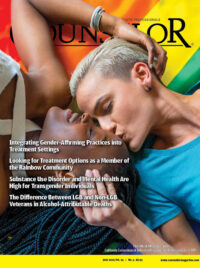Share

“What happens to the kids, the wives, the husbands, and the parents whose lives are devastated by the disease of alcoholism/addiction? . . . How do they get well?” – Tian Dayton, PhD
Consider these facts:
- One out of every four children is a child of an alcoholic.
- Fifty-five percent of all family violence occurs in an alcoholic/addicted home.
- Alcohol is a factor in 90 percent of all child abuse cases.
- Incest is twice as likely among children of alcoholics/addicts.
In addition, 70 percent of adult children of alcoholics (ACoA) develop compulsive patterns of their own, whether it involves alcohol, sex, gambling, food, or work.
While the notion of ACoAs began in the 1980s, it is still a relevant issue for research and exploration today. Dr. Tian Dayton’s fifteenth book, The ACoA Trauma Syndrome, addresses the importance of understanding this dynamic in the individual and the family in order to provide better treatment and support for those whose lives have been affected by addiction.
The ACoA Trauma Syndrome begins with Dr. Dayton’s own story of pain and confusion—her father was an alcoholic and an ACoA as well. “I had to do something to make emotional and psychological sense of living with a parent who made me feel both safe and terrified,” Dr. Dayton writes, “a parent who I loved and hated all at once.” In the 1960s, Dr. Dayton and her family believed that once her father got into treatment and got sober, the family would be fixed and things would go back to normal. Unfortunately, the trauma that resulted from living with an alcoholic remained and could not be forgotten.
In this book, Dr. Dayton guides readers through the origins and neurobiology of the ACoA trauma syndrome, as well as explaining how to heal the trauma, gain emotional freedom, and discover the concepts of “recover or repeat” in familial relationships. She defines the ACoA trauma syndrome as “a posttraumatic stress syndrome in which suppressed pain from childhood reemerges and is experienced, recreated, and lived out in adulthood.” Like her own experiences of thinking her family would go back to normal once her father was in recovery, Dr. Dayton emphasizes that the trauma and pain experienced in childhood—as a direct result of alcoholism or addiction—does not go away after the family member leaves the home.
The ACoA Trauma Syndrome highlights three kinds of ACoAs: The kind of people who don’t think their alcoholic home had much of an effect on them, the people who are unwilling to put in the emotional work required to deal with their pain, and the people who are willing to look at the past, put in the work, and free up the part of themselves that has been traumatized. Each of these groups shares the same problem—the trauma that triggers childhood fears, hypervigilance, and problems in intimate relationships.
Throughout the book, Dr. Dayton provides expertly written information on the syndrome itself as well as how to overcome the difficulties that arise from being an ACoA. Her probing look into the mind of an ACoA helps readers understand everything from disassociation, abuse, and family dynamics, to love, attachment, and resilience. Dr. Dayton also shares stories of some of her clients, which allow readers to vividly experience and understand the struggles of ACoAs.
Finally, the last half of The ACoA Syndrome is dedicated to healing and what counselors can do to help their ACoA clients and families. Dr. Dayton stresses the importance of owning, identifying, and processing the pain of trauma, as those are the only ways to attain emotional freedom and live a life free of addiction.
Buy Now >> Use coupon code WWRBOOKS at checkout for an additional 20% off!









 Counselor Magazine is the official publication of the California Association of Addiction Programs and Professionals (CCAPP). Counselor offers online continuing education, article archives, subscription deals, and article submission guidelines. It has been serving the addiction field for more than thirty years.
Counselor Magazine is the official publication of the California Association of Addiction Programs and Professionals (CCAPP). Counselor offers online continuing education, article archives, subscription deals, and article submission guidelines. It has been serving the addiction field for more than thirty years.